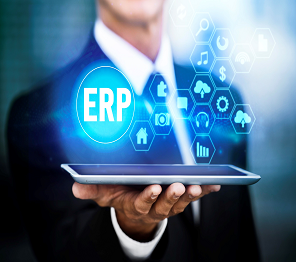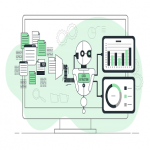In today's complex business environment, managing operations efficiently and effectively is paramount for success. Enterprise Resource Planning (ERP) systems have emerged as powerful tools to streamline processes, enhance productivity, and drive growth. However, choosing the right ERP system for your business can be a daunting task. In this blog post, we'll guide you through the process of selecting the perfect ERP system to meet your specific business needs.
1. Define Your Objectives and Needs
Before diving into ERP options, start by clearly defining your business objectives and needs. What specific problems or challenges do you want the ERP system to address? Are you looking to improve inventory management, financial reporting, supply chain visibility, or all of the above? By identifying your goals and requirements, you can narrow down your choices to systems that align with your priorities.
2. Assess Scalability
Consider your business's growth trajectory. A good ERP system should be scalable, meaning it can adapt to your company's evolving needs as it expands. Evaluate whether the ERP can accommodate an increase in users, transactions, and data volume without a significant overhaul.
3. Cloud-Based or On-Premises ERP
Decide whether you want a cloud-based (SaaS) or on-premises ERP system. Cloud-based ERP offers flexibility, accessibility, and automatic updates but may require ongoing subscription fees. On-premises ERP provides more control over data and security but entails higher upfront costs and IT infrastructure management.
4. Budget Considerations
Establish a clear budget for your ERP implementation, considering not only the initial software purchase but also ongoing maintenance, training, and support costs. Be prepared for potential additional expenses such as customization and integration with existing systems.
5. Industry-Specific Solutions
Some ERP systems are tailored to specific industries, such as manufacturing, healthcare, or retail. These industry-specific solutions often come with preconfigured modules and best practices designed to address sector-specific challenges. Consider whether an industry-focused ERP system aligns with your business requirements.
6. User-Friendliness and Training
Evaluate the user-friendliness of the ERP system. A system that is intuitive and easy to navigate will reduce the learning curve for your employees. Factor in the cost and availability of training resources to ensure that your team can effectively use the system.
7. Integration Capabilities
Check if the ERP system can integrate seamlessly with your existing software applications. Integration is crucial for data consistency and efficiency across different departments. It also helps prevent data silos and improves decision-making.
8. Vendor Reputation and Support
Research the reputation and track record of ERP vendors. Read customer reviews and seek recommendations from businesses in your industry. Additionally, consider the quality and availability of customer support, as timely assistance is vital when issues arise.
9. Data Security and Compliance
Data security and compliance with regulations (such as GDPR or HIPAA) are non-negotiable. Ensure that the ERP system adheres to robust security protocols and meets the compliance requirements relevant to your industry and location.
10. Pilot Testing
Before committing to a long-term contract, consider running a pilot test of the ERP system with a smaller team or in a specific department. This allows you to assess its functionality and compatibility with your processes and make necessary adjustments before a full-scale implementation.
Conclusion
Choosing the right ERP system for your business is a significant decision that can impact your operations for years to come. By carefully defining your objectives, assessing scalability, budgeting wisely, considering industry-specific solutions, and evaluating integration capabilities, you can make an informed choice that aligns with your business goals and sets you on a path to enhanced efficiency and growth. Remember that selecting the right ERP system is a process that requires thorough research and consideration, so take your time to ensure the best possible fit for your organization.








